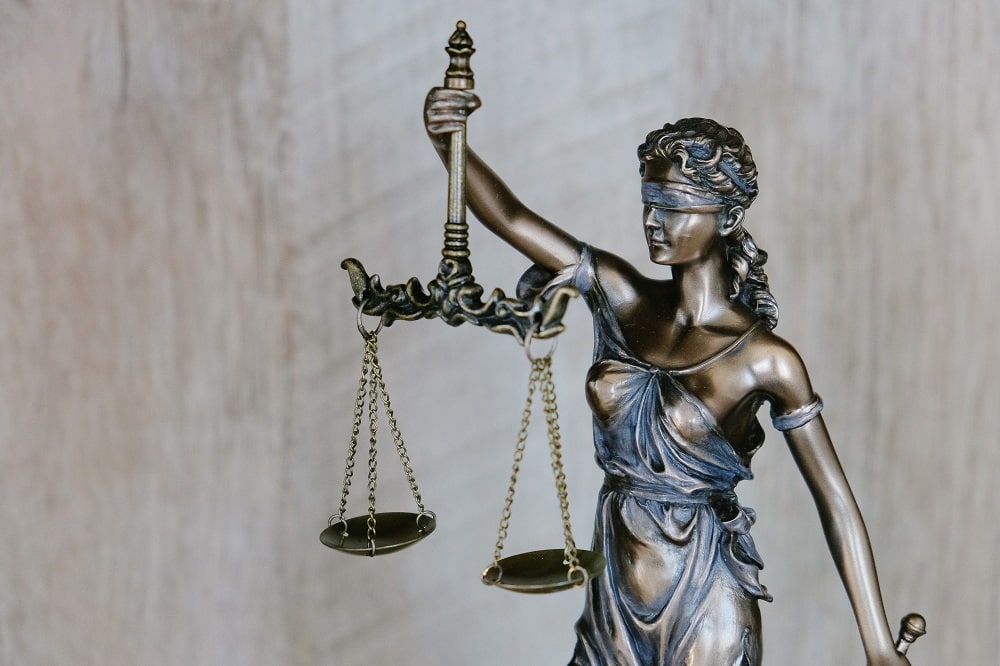The Role of Localization in International Legal Processes: Breaking Down Cultural and Linguistic Boundaries – Guest Post

In today’s interconnected world, international legal processes play a pivotal role in maintaining global order and resolving cross-border disputes. However, these processes can be complex, influenced by cultural and linguistic differences, that need to be navigated with sensitivity.
Today, we will explore the importance of understanding international legal systems and the impact of cultural and linguistic diversity on legal outcomes.
Importance of International Legal Processes
International legal processes serve as the essential foundation for fostering harmony and cooperation among nations across the globe. In an interconnected world, these processes play a pivotal role in establishing rules and norms that govern the behavior of countries, ensuring that they interact in a manner that upholds peace, stability, and mutual respect.
One of the primary functions of international legal processes is to provide a structured framework for resolving disputes between nations. By offering a platform where conflicts can be addressed through peaceful means rather than resorting to force or aggression, these processes contribute significantly to the prevention and resolution of conflicts. This not only reduces the potential for armed hostilities but also prevents the escalation of tensions that could lead to larger regional or global crises.
Another crucial aspect of international legal processes is their role in enforcing compliance with international law. International treaties, agreements, and conventions are designed to address a wide range of issues, from environmental protection and trade regulations to human rights and humanitarian law. These legal instruments provide a basis for holding countries accountable for their actions and ensuring that they uphold their obligations to the international community.
Furthermore, international legal processes play a vital role in promoting and protecting human rights on a global scale. Through international human rights conventions and treaties, countries commit to safeguarding the fundamental rights and dignity of individuals, regardless of their nationality, ethnicity, or beliefs. This fosters a shared commitment to the values of equality, justice, and fairness, and it empowers the international community to address human rights abuses and advocate for those who are oppressed or marginalized.
Impact of Cultural and Linguistic Differences
Cultural and linguistic differences can significantly influence how legal processes unfold. Cultural norms and values shape the interpretation and implementation of laws, impacting everything from contractual agreements to criminal justice outcomes. Additionally, language barriers can lead to miscommunication and misunderstandings during legal proceedings, affecting the fairness and effectiveness of justice.
As it exerts a profound influence on the dynamics of legal processes, shaping the very fabric of how laws are interpreted, applied, and experienced. These differences create a rich tapestry of diverse legal practices worldwide, but they also present unique challenges that require careful consideration to ensure fairness, equity, and effective justice for all.
In multicultural and multilingual societies, the legal system’s ability to accommodate diverse backgrounds becomes crucial to upholding justice. Courts and legal institutions may need to adapt their practices to be more inclusive and culturally competent.
However, linguistic differences present another significant challenge in legal proceedings. Language barriers can also hinder access to justice for linguistic minorities, making it essential for legal systems to provide interpretation and translation services. When parties involved in a legal dispute speak different languages, miscommunications and misunderstandings can arise, impeding effective communication and potentially compromising the integrity of the legal process. This can lead to unintended consequences and disputes over the true intent of legal provisions if not properly addressed.
Understanding International Legal Systems
When discussing international legal systems, every country has its own way of handling legal matter processes, comprising laws and regulations specific to its culture and history. These legal systems fall into various categories, including common law, civil law, religious law, and customary law. Understanding the diverse legal frameworks is crucial for effective cross-border cooperation and harmonization of legal norms.
Understanding international legal systems is an intricate task that requires a comprehensive grasp of the principles, practices, and historical underpinnings that shape each legal framework.
For example, common law systems, prominent in countries like the United States, Canada, and the United Kingdom, draw upon judicial precedents and case law to interpret statutes and establish legal principles. In contrast, civil law systems, prevalent in many European and Latin American nations, rely on codified laws and comprehensive legal codes to govern various aspects of life.
Concepts like justice, fairness, and accountability form the foundation of many legal systems, regardless of cultural background. However, the way these principles are interpreted and implemented can differ significantly, leading to varied legal outcomes.
Role of International Law and Treaties.
Gaining a nuanced understanding of the distinctive features of each legal system is indispensable for fostering effective international cooperation, facilitating transnational business transactions, and harmonizing legal norms to address global challenges collaboratively.
Cultural Influences on Legal Processes
Since each country has its own way of own court system and legal decision-making processes, below are some of the factors in how culture molds these legal systems that you should be aware of when handling cross-border cases.
- Formation of Laws: Legal systems often draw inspiration from cultural values and societal norms, reflecting the collective morality of a community. Some cultural practices may become laws, while others are rejected based on legal principles. This can lead to variations in laws between different regions and countries.
- Interpretation of Laws: Culture heavily influences how laws are interpreted by judges and legal practitioners. Legal decisions may be influenced by cultural biases, resulting in divergent outcomes for cases involving similar facts but different cultural contexts. These interpretations can also shape legal precedents, setting the tone for future cases and shaping the evolution of the legal system.
- Dispute Resolution and Mediation: Cultural values often impact how conflicts are resolved outside formal court settings. Some cultures prioritize collective harmony and may favor mediation or reconciliation processes over adversarial litigation. Understanding and incorporating culturally sensitive methods of dispute resolution can foster greater trust in the legal system among diverse communities.
In many societies, the cultural values and beliefs held by their members significantly influence the formulation and evolution of laws. For instance, countries with a strong emphasis on individual freedom and autonomy may prioritize laws that protect personal liberties, while those with a greater focus on collective welfare might lean towards laws aimed at preserving social harmony and order. The cultural lens through which laws are crafted reflects the aspirations, values, and goals of a society, playing a pivotal role in establishing the social contract between the state and its citizens.
Moreover, cultural factors influence how laws are enforced and how justice is administered. In some cultures, reconciliation, and restitution are valued over punitive measures in addressing criminal offenses. Restorative justice practices, which aim to repair harm and restore relationships between victims and offenders, may be favored over retributive approaches that emphasize punishment. This approach seeks to reintegrate offenders into the community, promoting healing and reducing the likelihood of recidivism.
Cultural influences are also evident in how legal proceedings are conducted and how evidence is evaluated. The role of family, community, and religious leaders may be more prominent in certain cultures, mediating conflicts and influencing the resolution of legal disputes. Traditional dispute resolution mechanisms, such as tribal councils or elders’ involvement, may complement or even supplant formal court proceedings in some regions.
Translation and Interpretation in Legal Contexts
Language barriers can be a significant obstacle in international legal processes. Participants in legal proceedings, including defendants, witnesses, and lawyers, may struggle to communicate effectively due to language differences. This can lead to misunderstandings, delays, and, in some cases, denial of justice.
As mentioned, due to the challenges posed in by language barriers, many government agencies provide multilingual resources to accommodate non-native speakers. It is crucial to uphold the integrity of the original message while conveying it in a different language. Therefore, legal professionals must be attentive to the potential linguistic challenges and seek to bridge the gap by working with experts in translation services specialized in document translation for international court purposes to ensure accuracy and quality so that all parties can fully comprehend and participate in the proceedings.
Legal professionals can conduct a thorough evaluation of the translation expert to ensure that they are getting the best service for the clients or become proficient in multiple languages, especially if they regularly handle cross-border cases. Multilingual lawyers can bridge the gap between parties and facilitate effective communication. Moreover, they can provide nuanced interpretations of legal nuances, ensuring fair representation for all involved.
Conclusion: Embracing Unity in Diversity
Navigating international legal processes requires sensitivity to cultural and linguistic differences. By understanding the various legal systems worldwide and acknowledging the impact of cultural influences, we can foster better cooperation and promote justice on a global scale. Embracing unity in diversity is vital not only for resolving disputes but also for building a harmonious and interconnected world. So by working together with other legal and language professionals from across the world to address to bridge cultural and linguistic divides, we can ensure that all parties are given the opportunity to speak out their grievances and concerns to ensure that international legal processes are fair and done effectively.










